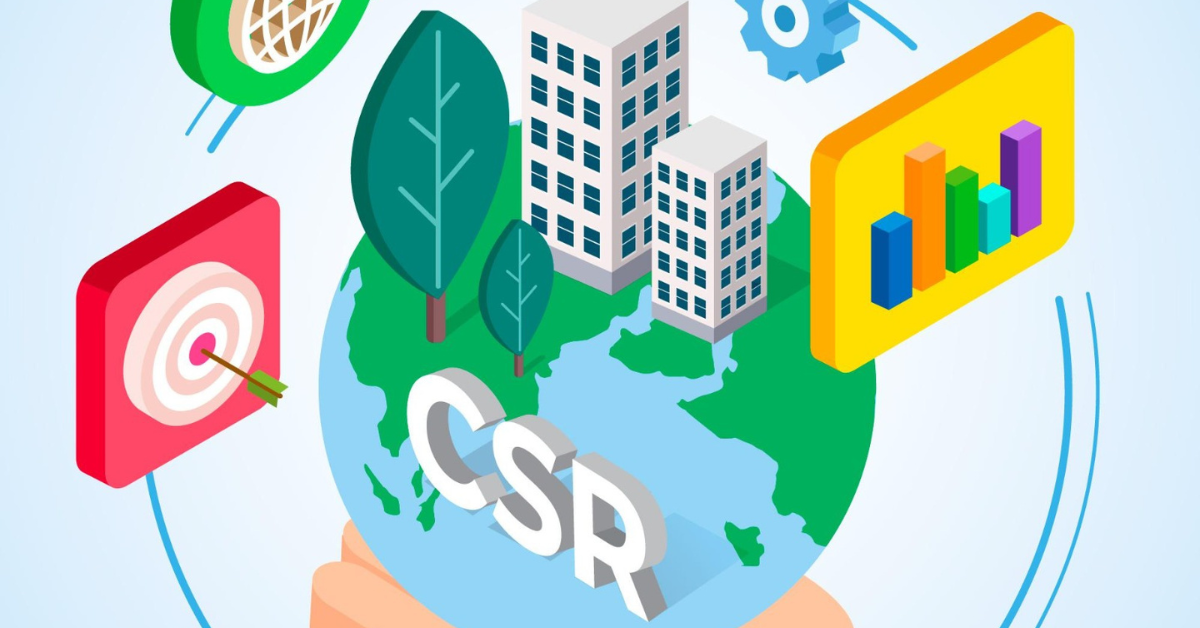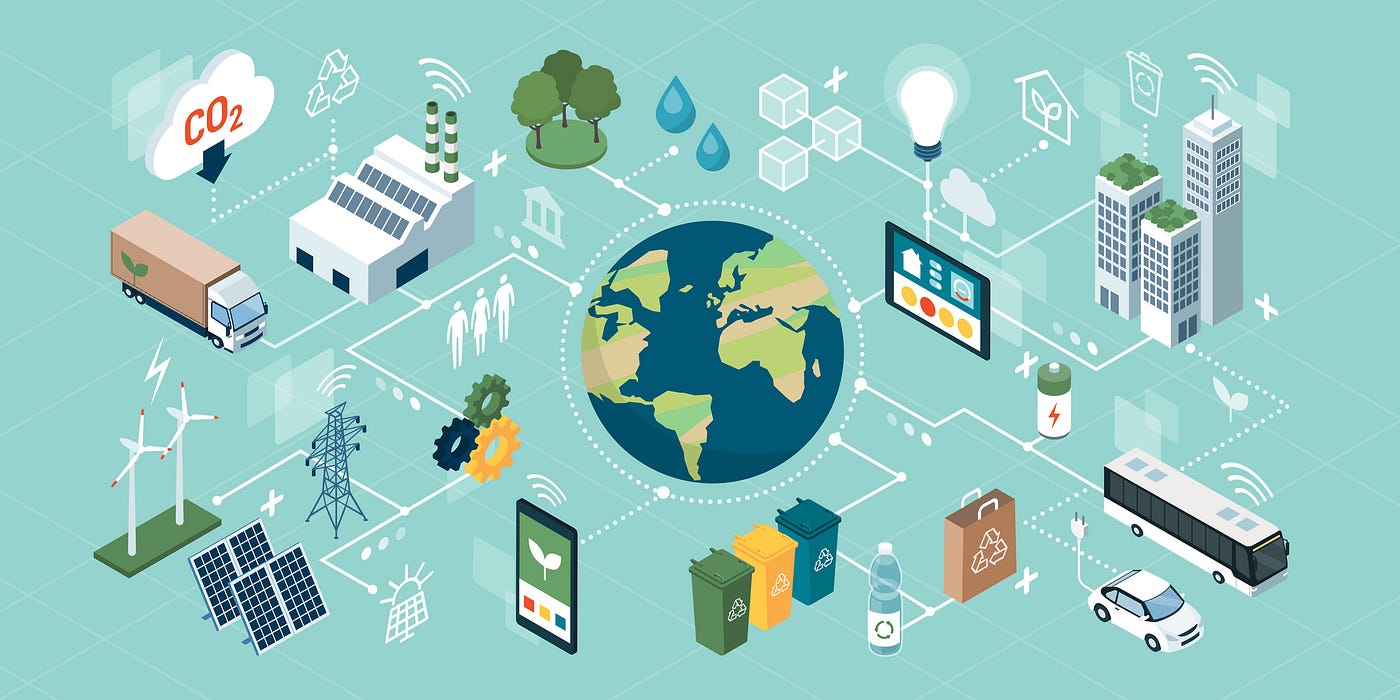Driving Sustainability in Supply Chains
In today's rapidly evolving business landscape, sustainability has emerged as a critical imperative for companies looking to thrive in a world increasingly concerned with environmental and social issues. Nowhere is this more evident than in supply chains, where businesses are under increasing pressure to reduce their carbon footprint, minimize waste, and promote ethical sourcing practices. In this article, we will explore how businesses are integrating sustainability into their supply chains and the strategies they are employing to create a greener, more socially responsible future.
The Urgency of Sustainability in Supply Chains
Supply chains play a pivotal role in the global economy, facilitating the movement of goods from raw materials to finished products and ultimately to consumers. However, traditional supply chain practices often prioritize cost and efficiency over environmental and social considerations, leading to negative impacts on the planet and local communities. From deforestation and pollution to labor exploitation and human rights abuses, the consequences of unsustainable supply chain practices are far-reaching and profound.
Recognizing the urgency of the situation, forward-thinking companies are taking proactive steps to address these challenges and drive positive change throughout their supply chains. By integrating sustainability into their operations, these companies are not only reducing their environmental impact but also enhancing their reputation, mitigating risks, and creating long-term value for shareholders and stakeholders alike.
Key Strategies for Sustainable Supply Chains
Sustainability in supply chains has become increasingly important as businesses recognize the need to mitigate environmental impact and meet consumer demands for ethically sourced products. Here's a list of how businesses are integrating sustainable practices into their supply chains: Renewable Energy Adoption: Many companies are investing in renewable energy sources such as solar, wind, and hydroelectric power to reduce their reliance on fossil fuels and lower carbon emissions. For example, companies may install solar panels on their manufacturing facilities or purchase renewable energy credits to offset their carbon footprint.
Renewable Energy Adoption: Many companies are investing in renewable energy sources such as solar, wind, and hydroelectric power to reduce their reliance on fossil fuels and lower carbon emissions. For example, companies may install solar panels on their manufacturing facilities or purchase renewable energy credits to offset their carbon footprint.
Recycled Materials Usage: Businesses are incorporating recycled materials into their manufacturing processes to minimize waste and conserve natural resources. This includes using recycled plastics, metals, and paper in product packaging and components. Companies may also implement closed-loop systems to recycle and reuse materials within their supply chains.
Ethical Sourcing and Fair Trade Practices: Companies are prioritizing ethical sourcing practices to ensure that raw materials are obtained in a socially responsible manner. This includes adhering to fair trade standards, ensuring fair wages and safe working conditions for laborers, and promoting transparency throughout the supply chain. For example, companies may partner with certified fair trade suppliers for commodities such as coffee, cocoa, and cotton.
Supply Chain Optimization for Efficiency: Businesses are optimizing their supply chains to reduce waste, minimize transportation emissions, and improve overall efficiency. This may involve consolidating shipments, implementing just-in-time inventory management, and using data analytics to optimize logistics routes. By streamlining operations, companies can reduce their environmental footprint while improving cost-effectiveness.
Collaboration and Transparency: Collaboration among supply chain partners is essential for driving sustainability initiatives forward. Companies are forming partnerships with suppliers, manufacturers, and distributors to collectively address environmental and social challenges.
Additionally, transparency in supply chain practices is becoming increasingly important as consumers demand greater visibility into the origins of products and the environmental impact of their production.
Case Studies in Sustainable Supply Chains
 Patagonia: The outdoor apparel company Patagonia is known for its commitment to sustainability across its supply chain. Patagonia sources organic cotton, recycled polyester, and traceable down for its products, prioritizing environmental and ethical considerations. The company also invests in renewable energy and works closely with suppliers to ensure fair labor practices.
Patagonia: The outdoor apparel company Patagonia is known for its commitment to sustainability across its supply chain. Patagonia sources organic cotton, recycled polyester, and traceable down for its products, prioritizing environmental and ethical considerations. The company also invests in renewable energy and works closely with suppliers to ensure fair labor practices.
IKEA: IKEA has implemented a range of sustainability initiatives within its supply chain, including investments in renewable energy, responsible wood sourcing, and circular economy practices. The company aims to become climate positive by 2030, meaning it will reduce more greenhouse gas emissions than it emits throughout its value chain.
Unilever: Unilever, a global consumer goods company, has made significant strides in promoting sustainability within its supply chain. The company has committed to sourcing 100% of its agricultural raw materials sustainably by 2020 and has implemented programs to improve the livelihoods of smallholder farmers in its supply chain.
These case studies highlight how businesses can integrate sustainable practices into their supply chains to reduce carbon footprint and promote ethical sourcing, ultimately contributing to a more environmentally and socially responsible business ecosystem.
Conclusion
 In conclusion, sustainability in supply chains is no longer a mere option but a business imperative. Companies that embrace sustainability not only reduce their environmental footprint and mitigate risks but also enhance their reputation, drive innovation, and create value for all stakeholders involved. By adopting renewable energy, using recycled materials, promoting ethical sourcing practices, optimizing supply chain operations, and fostering collaboration and transparency, businesses can pave the way for a greener, more socially responsible future. Together, we can build a sustainable supply chain ecosystem that benefits people, planet, and profit alike.
In conclusion, sustainability in supply chains is no longer a mere option but a business imperative. Companies that embrace sustainability not only reduce their environmental footprint and mitigate risks but also enhance their reputation, drive innovation, and create value for all stakeholders involved. By adopting renewable energy, using recycled materials, promoting ethical sourcing practices, optimizing supply chain operations, and fostering collaboration and transparency, businesses can pave the way for a greener, more socially responsible future. Together, we can build a sustainable supply chain ecosystem that benefits people, planet, and profit alike.






































